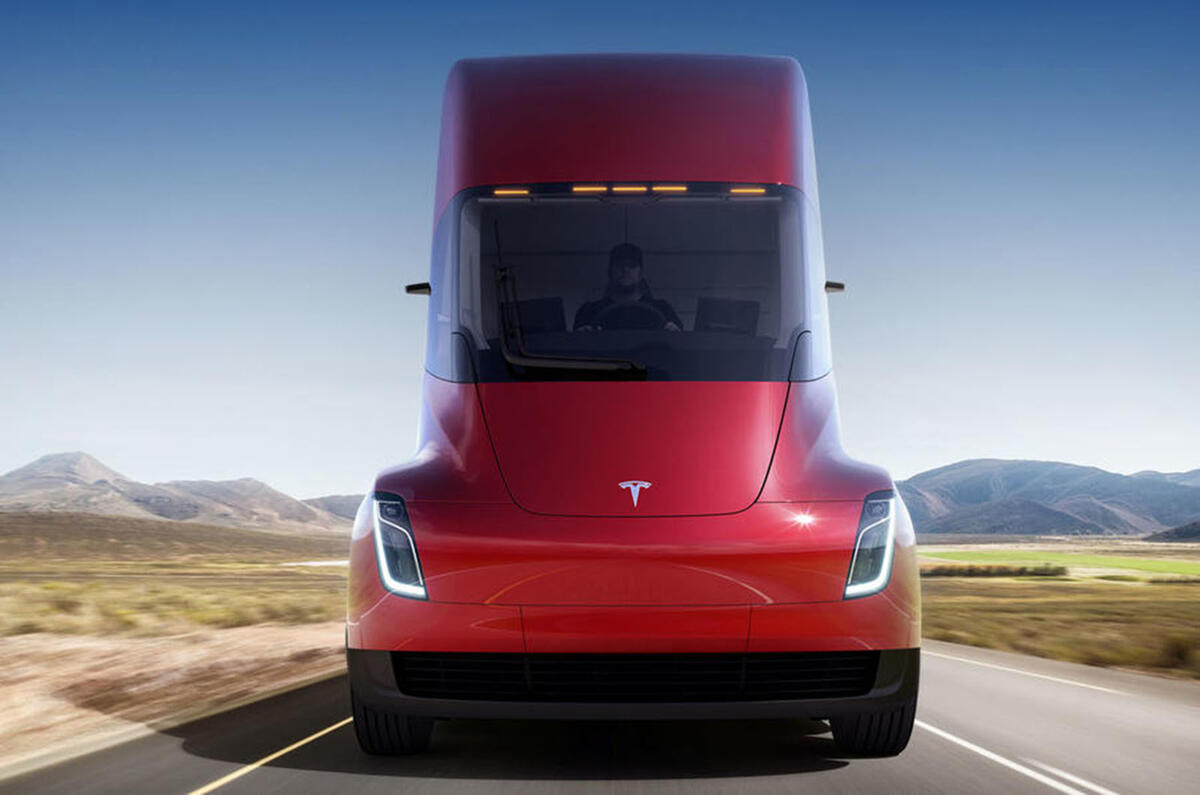The announcement of the Tesla Semi electric lorry included some grand figures, not least a 0-60mph time of 5.0sec. But how relevant are performance figures in an industry so heavily led by cost and business efficiency?
Not very, according to the UK's Road Haulage Association (RHA). “Hauliers don’t care about these claimed figures,” the RHA’s policy advisor, Rod McKenzie, told Autocar. “They’re not relevant to us. We’re not looking for performance, not least because lorries’ speed is limited to 56mph.”
McKenzie added that while the RHA thinks electric lorries are the way forward, they will not be in the short term. “My gut feeling is that they are 20 years away,” he said.
McKenzie named cost, range and cargo capacity as the main reasons why he reckons electric lorry uptake will not arrive for some time.
“I’m worried about the price point," he said. "The Tesla Semi is likely to cost more than £200,000, which is beyond the budget of hauliers in the UK. A lorry here costs £85,000. And with the industry making margins of 2-3%, we can’t afford that extra cost.
He continued: “The Tesla Semi has a reported range of 500 miles. That’s quite a lot less than a diesel lorry. It means charging. First of all, where are the charging points? There aren't many around. And lorries can be filled up with diesel very quickly. Musk said there would be quick-charging in 30 minutes but I think we need to see charging times in real terms. Any loss of time greatly reduces our operational efficiency.”
When asked how lorry drivers have reacted to the Semi, McKenzie said: “I’ve spoken to a few of them and most have laughed. Tesla has a lot to prove. Hauliers are not risk-taking people and will need to be convinced.”
Related stories:





Join the debate
Add your comment
Seems like everyone is
It doesn't need to use a crawler Lane and this is fully loaded as well - which by the way, the Range figures are worst case scenarios - fully loaded so real world range is likely to be substantially higher if these claims are correct.
Getting to destination faster is a goal, is it not? Charging can happen when the truck driver is taking his or her mandatory break.
Well since they give you the
Well since they give you the CD figure, and frontal area, mass and rolling friction are known values you can just work out how much power this thing will need at 55mph, it comes out as 92KW. Thus to achieve a range of 600 miles we would need 1009KWh of storage, suspiciously close to a nice round number.
Hence I think the truck has a ~1000KWh battery, based on P100D battery sizes this would come out at 5500kg in mass, I suspect that the next gen battery in the truck may actually be between 4500-5000kg in mass as these are the sorts of densities that Tesla would need to achieve for a pack to make the Roadster MkII remotely feasible.
Eitherway I don't think that Tesla will pack in more than 1000KWh of storage in for cost and mass reasons, hence the 600 mile range is the maximum range assuming constant speed and a flat road. Real life range is much lower.
As stated by others though in the UK 450 miles is the max distance a driver can travel in one day and inpractice the working day is likely to involve a charging stop between 4 hour stints in a motorway services.
What is most interesting is the price at $180,000 that would only buy you the battery at current Tesla battery costs, it is therefore likely that they are banking on getting costs down to $100/KWh before this hits production.
in 2037
there will still be truckers around. quite a few want's to be filled up from diesel pumps?
A typical luddite view from